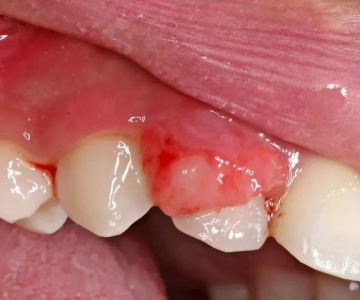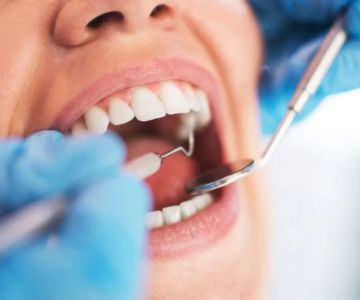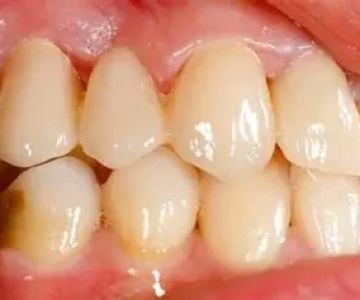
1. The Connection Between Gum Disease and Heart Health
At first glance, it might seem like your gums and your heart have little to do with each other. But modern medical research tells a different story. Periodontal disease—or gum disease—has been linked with an increased risk of heart disease, including heart attack and stroke. The mouth is the gateway to the body, and what happens there can have ripple effects far beyond oral health.
When gums become inflamed due to bacterial infection, the bacteria can enter the bloodstream. Once circulating, these bacteria trigger inflammation elsewhere in the body, including blood vessels. This can lead to atherosclerosis, a condition where arteries become clogged and hardened—one of the leading causes of cardiovascular disease in the United States.
2. Real-Life Case: A Heart Scare That Started at the Dentist
Consider the story of 58-year-old James from Chicago. He hadn’t been to the dentist in over five years. Busy with work and life, oral hygiene wasn’t his priority—until a sharp tooth pain forced a visit. His dentist found severe periodontal disease and referred him to a periodontist. Blood tests also showed elevated levels of inflammation markers.
Within three months, James experienced chest pain and was hospitalized with a mild heart attack. His cardiologist asked whether he had gum disease—and confirmed that untreated oral infections may have contributed to systemic inflammation and vascular damage. James is now a vocal advocate for better dental care, not just for his teeth but for his heart.
3. What Does the Science Say?
According to the American Heart Association, while researchers are still exploring the full mechanisms, there's growing consensus that poor oral health is a contributor—not merely a coincidence—in cardiovascular disease. A landmark study published in the Journal of Periodontology found that individuals with gum disease are almost twice as likely to suffer from coronary artery disease.
In another study from the Centers for Disease Control and Prevention (CDC), individuals with poor oral hygiene were shown to have higher levels of C-reactive protein (CRP), a key indicator of inflammation that correlates closely with heart attack risk.
4. How Bacteria in the Mouth Reach the Heart
Your mouth is home to hundreds of bacterial species—many of which are beneficial. However, poor brushing, flossing, or untreated cavities can lead to pathogenic bacteria gaining dominance. These bacteria can penetrate inflamed gum tissue and enter your bloodstream.
Once in circulation, they can attach to fatty plaques in the arteries, contributing to clot formation. These clots can obstruct blood flow, leading to a heart attack. Infections such as endocarditis—a potentially fatal inflammation of the heart lining—are also often traced back to oral bacteria.
5. Who Is at Higher Risk?
People with diabetes, smokers, those with autoimmune diseases, or those who neglect routine dental care are at greater risk of developing gum disease—and, in turn, cardiovascular complications. In the U.S., nearly 47% of adults over age 30 have some form of periodontal disease. This means millions may unknowingly be at greater risk for heart issues.
Individuals with a family history of heart disease or stroke should be especially vigilant about oral care. Your dentist may be the first to spot signs of inflammation that warrant medical attention beyond the mouth.
6. What You Can Do to Protect Both Your Teeth and Your Heart
It’s not just about brushing twice a day—though that’s an important start. Effective oral hygiene also includes:
- Daily flossing to remove plaque buildup between teeth
- Regular dental cleanings every six months
- Avoiding sugary foods and beverages
- Not smoking or using tobacco products
- Managing underlying health conditions like diabetes and high blood pressure
If you haven’t seen a dentist recently, it may be time to get a full evaluation. At Family Dentistry Online, we help connect you with dental professionals who not only treat cavities but take a full-body wellness approach to oral care.
7. The Future of Prevention: Integrating Dental and Heart Health
Healthcare is shifting toward a more integrated model, where dentists and doctors collaborate. Expect more cardiologists to ask about your dental habits—and vice versa. Some health systems in the U.S. are already using dental records as part of cardiovascular risk assessments.
Your next dental visit could do more than clean your teeth—it could save your life. With heart disease being the #1 killer in America, taking care of your gums may be one of the most underrated yet powerful ways to protect your cardiovascular health.







 Prosthodontics of Ho-Ho-Kus: Michael W. Klotz, DMD, MDentSc, FACP4.0 (27 review)
Prosthodontics of Ho-Ho-Kus: Michael W. Klotz, DMD, MDentSc, FACP4.0 (27 review) Westbury Dental Spa4.0 (376 review)
Westbury Dental Spa4.0 (376 review) Arpino Orthodontics5.0 (133 review)
Arpino Orthodontics5.0 (133 review) Jonesboro Pediatric Dental Group4.0 (77 review)
Jonesboro Pediatric Dental Group4.0 (77 review) Route 64 Dental5.0 (171 review)
Route 64 Dental5.0 (171 review) Smile Obsession Dental5.0 (517 review)
Smile Obsession Dental5.0 (517 review) The Importance of Oral Health Education During Pregnancy for a Healthy Pregnancy
The Importance of Oral Health Education During Pregnancy for a Healthy Pregnancy Best Tips for Brushing Your Teeth Properly for Healthy Gums: Essential Techniques for Oral Health
Best Tips for Brushing Your Teeth Properly for Healthy Gums: Essential Techniques for Oral Health Why Skipping Dental Checkups Can Lead to Bigger Oral Health Problems
Why Skipping Dental Checkups Can Lead to Bigger Oral Health Problems Advantages of Porcelain Dental Restorations
Advantages of Porcelain Dental Restorations How Can Diabetes Cause Tooth and Gum Problems? Preventing and Managing Oral Health Issues
How Can Diabetes Cause Tooth and Gum Problems? Preventing and Managing Oral Health Issues Healthy Habits for Promoting Good Oral Health and Hygiene: Tips for a Healthy Smile
Healthy Habits for Promoting Good Oral Health and Hygiene: Tips for a Healthy Smile